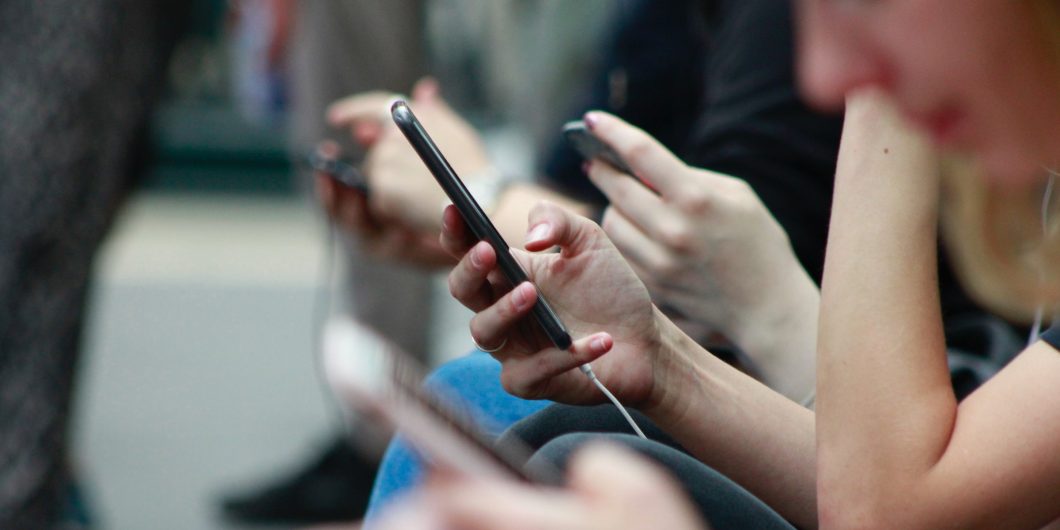Social media reveals little about democracy that a serious student did not already know, but the inanity is so relentless now that it is hard to ignore.
Social Media and the Human Person
As the Department of Justice executes an antitrust suit against Google, Elizabeth Warren hosts fundraisers against big tech, and Josh Hawley writes a book called The Tyranny of Big Tech, the Netflix documentary The Social Dilemma has found a captive market.
The film focuses on the methods employed by social media to keep our attention and the effects of those methods. Presented by a number of former employees of large technology firms, the documentary also plays out skits to show the implications of technology’s presence in everyday life. As a longtime sceptic of social networking, I was happy to hear several friends say that the film caused them to question their use of social media. I was hopeful that the film would stir broad reflection, particularly among millennials and Gen Z, since their intake of Netflix is all but guaranteed.
The Social Dilemma does point out some of the bad habits encouraged by use of Twitter, Facebook, Google, and others. The film draws attention to the copious time wasted scrolling through these platforms. It also describes the way social media algorithms, seeking to perpetuate contact through pleasing content, narrow people’s horizons. Social networks induce people to value vain and fleeting things, such as likes and retweets. One featured personality aptly dubs social platforms as “digital pacifiers.”
But the climax of the film displays Tristan Harris, a former Google employee and the film’s primary interviewee, testifying to a Senate committee that online social platforms have to be held responsible. Another featured personality, Shoshana Zuboff, author of The Age of Surveillance Capitalism, makes an extremely morally confusing comparison between banning slavery and banning . . . targeted advertisements. The film attempts to make the case that human subservience to technological entertainment is a fait accompli, which requires heavy-handed regulation to avert. Harris puts it this way: “There’s this screen, and then on the opposite side of the screen, there’s these thousands of engineers and supercomputers that have goals that are different than your goals, and so, who’s gonna win in that game?”
Let’s put in very practical terms what’s happening in this purportedly nefarious process. Suppose there’s a YouTube user named Thomas who likes watching “fail compilations.” YouTube can tell from Thomas’ viewing data that he usually logs on and pours through these videos around 9:30 pm, and YouTube presumes that’s how Thomas winds down before bed. So as soon as Thomas opens his YouTube app each night, they pipe in suggestions like “Best Fails of September 2020.” And after Thomas watches that video, YouTube auto-plays and suggests more of the same. All the while, the website sprinkles in ads that have a relatively high click-through rate for people who watch similar videos. That’s it. That’s the ominous “surveillance capitalism.”
“To the degree we officially propound a mean and squalid view of humanity, there will emerge mean and squalid human beings.”
Irving Kristol
I have no qualms with the film’s claims that websites and platforms encourage us to use them too much and that lengthy use of social media and entertainment is bad for people. In fact, these should be entirely uncontroversial assertions. But the film is structured as though consumers weren’t complicit in this process. In reality, at each decision point along the way, most of us fail this virtual marshmallow test. We don’t resist scrolling through another 50 tweets, watching another hour of YouTube, or clicking through 20 Facebook friends’ inflammatory news links.
During an election cycle, it is all too apparent that being a responsible person is crucial. Given America’s inability to arrive at collectively acknowledged facts, an individual’s rampant use of these sites often has network effects. In other words, being an idiot on the internet doesn’t hurt only the actors: it also affects the nation as the original idiocy provokes countervailing idiocy.
So what can a democratic and free society do about this? How can we balance the need for prudent behavior with the right to be wrong? As Irving Kristol wrote, self-government “is something strenuous, something which involves our making painful demands upon ourselves, something which directs us to a normative conception of the self to which we should properly aspire.”
Rather than waiting for social media sites to come under political pressure, we have a simple, if strenuous, workaround: intentional disengagement. We should aspire to a concept of ourselves, one that usually skips chocolate cake and limits useless time on the internet. We should make demands upon ourselves not to be absorbed by social networks, to decline the like-fest on Instagram, or the futile political argument on Facebook or the worthless YouTube rabbit trails. It’s sure to be a painful process—we got to this point because we enjoy giving in and vegging out on our phones. But the lifeline of opting for good use of our time remains.
As George Will might say, The Social Dilemma has a firm grip on half a point. The film does well to demonstrate the downright damaging effects social media can have on our polity. Sometimes that’s even as grim as ideological radicalization. And awareness of these challenges is the first step toward developing appropriate norms around the use of social media. But its conclusion that we are all helpless consumers, hoodwinked by Instagram and Facebook, is a profoundly depressing misunderstanding of humanity. The film describes thoughtless automatons who, if pelted with enough content and ads, will keep scrolling and keep buying. In the essay quoted above, Kristol warns us, “To the degree we officially propound a mean and squalid view of humanity, there will emerge mean and squalid human beings.” Some yet-to-be-defined regulatory goal would only be a disavowal of human agency and, thereby, dignity. Instead, we should chip away at our social dilemma with honesty and conscientiousness, embracing the task of self-rule.



